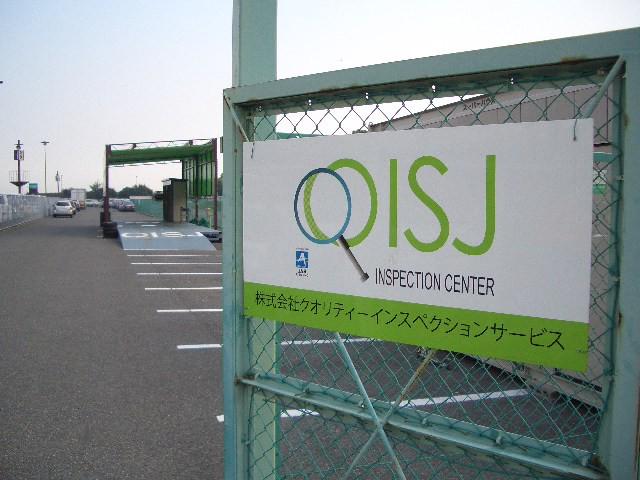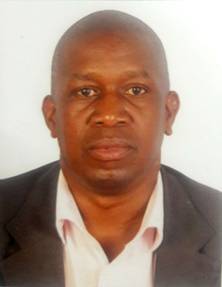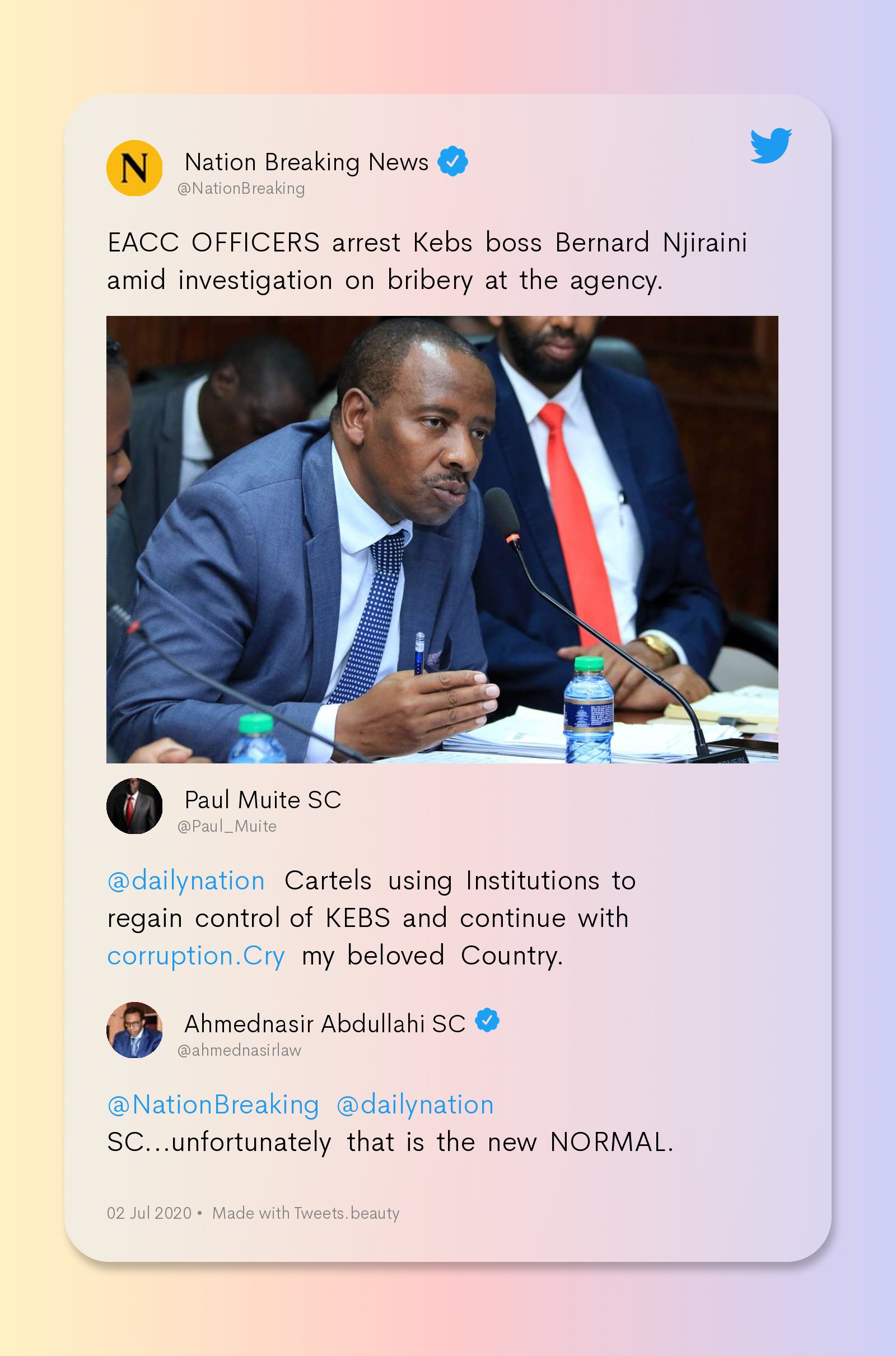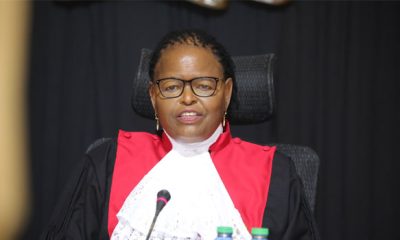Investigations
State Capture: Puzzle As How Blacklisted QISJ Maneuvered With Impunity To Win Last Minute Billion Shilling Deal With Uhuru Men

In what could best be described as one of the instances of state capture, Quality Inspection Services Japan (QISJ) has broke the records by staying on the bag despite its scandalous path and business in Kenya.
Kenya Bureau of Standards (KEBS) has contracted a Japanese firm to verify the services for used motor vehicles, spare parts and mobile equipment in Japan, United Kingdom, Thailand, South Africa and United Arab Emirates for three years.
In a statement Tuesday, KEBS announced that it had settled on Japanese firm Quality Inspection Services Inc. to conduct the services from August 19, 2022, and the same extended to Singapore.
Cited and blacklisted for poor inspection of radioactive substances in used vehicles, facing conflict of interest queries and questions about its capacity and professionalism, one would have expected that Japanese used motor vehicle inspection firm, Quality Inspection Services Japan (QISJ), would be long gone from the Kenyan market.
But no. In fact, despite all the accusations against QISJ, including evidence of having sponsored auditors to discredit rivals, QISJ carries on like nothing could be wrong, with vengeance and impunity.
The Japanese used car inspection firm has operated in Kenya for the last decade, contracted by the Kenya Bureau of Statistics (KEBS) to conduct the Pre-Export Verification of Conformity (PVOC) of used motor vehicles and motor vehicle spare parts destined for Kenya.
In that period, many allegations have arisen against the firm. But QISJ’s speed and commitment to ignoring the allegations or blocking investigations have been as good as, perhaps even better, than the pace of the allegations.
In 2015, four years after the Fukushima Daiichi nuclear disaster in 2011, the threat of nuclear contamination was real and Japanese authorities were not taking matters lightly. Yet for QISJ, the threat posed by radioactive materials on motor vehicles destined for Kenya was not anywhere near their top priorities. They wanted to clear as many vehicles as possible for profit.
But in 2015, the Japan Harbor Transportation Association (JHTA), in a notice dated August 27, 2015, blacklisted QISJ for poor inspection of radioactive substances in used vehicles.
“On May 25 and August 24, 2015, our committee investigated the actual inspected operation for radiation. The result of the investigation of these two foreign-owned companies, Automotive Technologies Ltd and Quality Inspection Services Japan, has received the notice letter (Letter No. 23-123, dated August 26, 2015) from the committee, that they are terminated as radiation surveyors since according to union standards, their actual inspectors are unqualified,” JHTA said in the letter.
The blacklisting, one would expect, would have caused some action from Kenyan authorities but it did not. Instead, QISJ has used its political and financial connections to cement its place as a monopoly for the lucrative three-year, Sh1.5 billion a year tender. In 2020, KEBS broke that monopoly, but only briefly it appears. There are indications that KEBS wants to go back to the regime of a single service provider.
That KEBS was not moved by QISJ’s blacklisting would suggest that the issues around conflict of interest have not bothered them at all. According to KEBS tender conditions for PVOC assignment, bidders are disqualified if they have usually been barred from activities or businesses that could be deemed to be in conflict with inspection services. That includes motor vehicle exportation to Kenya.
From 2011, it became evident that QISJ and Jans Trading Ltd were businesses that shared more than just addresses and phone numbers: Jans Umar and Mr Hatano Kiyoaki were common denominators. They were directors in both QISJ and Jans Trading Ltd.
Jans Trading Ltd is the biggest exporter of used motor vehicles to Kenya. In fact, by 2011, Jans was bringing in 9,000 used motor vehicles annually to Kenya from Japan, accounting for about 25 percent of all motor vehicle exports to the country. The figure may have changed because the country now imports about 7,000 a month with almost a quarter of that still being brought in by Jans.
Issues of conflict of interest were first brought to the fore by the Japan Export Vehicle Inspection Centre (JEVIC), which previously had the KEBS tender before they were unceremoniously kicked out in favour of QISJ.
In March 2011, through letters to then KEBS managing director Joseph Koskey, JEVIC CEO Damon Jackson listed five areas that proved that QISJ and Jans Trading Ltd were basically sister companies that shared not only directors but..
“Additionally JEVIC has documented evidence that the director of QISJ is and continues to work out of Jans Trading office in Yokohama,” the letter stated. Documents seen confirmed that JEVIC was correct and the situation largely remains the same to date in terms of directorship. However, phone numbers and addresses have been changed over the period as the two companies try to conceal their relationship.
Kenyan media reports of November 2011 of the arrest of Umar in Kenya by the Directorate of Criminal Investigation (DCI) also confirm that QISJ and Jans Trading are one and the same company. Umar had visited Kenya at the time KEBS was evaluating tenders for the PVOC assignment. However, he was arrested, not for anything to do with QISJ and the ongoing tender at the time, but as a director of Jans, accused of defrauding Kenyan car buyers by not delivering on orders.
Given the relationship that exists between QISJ and Jans, the latter continues to offend the clear terms of KEBS’ tender requirements that there should be no instance of conflict of interest. But the relationship is even more worrying: it raises the possibility that Jans Trading could be getting away with bringing in motor vehicles that do not meet the age and condition requirements for exportation to Kenya.
In this relationship, sustained through impunity, conflict of interest, anti-uncompetitive business behaviours, the other players in the PVOC business continue to bear the brunt of QISJ’s ruthlessness. Sabotage, a questionable special audit by the auditor general and sponsored debarment proceedings, in QISJ’s world, are the name of the game.
East Africa Automobile Services (EAA) and Auto-Terminal Japan (ATJ) have become some of QISJ’s biggest targets. Yet before things changed, and at a time QISJ did not have the capacity to perform the PVOC functions, it was these two companies that it sub-contracted and whose premises it used whenever due diligence teams from Kenya visited Japan. Specifically, QISJ sub-contracted EAA in 2014, and paid the latter a rental fee per motor vehicle inspected in EAA’s premises.
Behind scenes of tender wars
Last year, the tender had been dogged by controversy that has forced the contract to be postponed multiple times last year and left the standard’s agency on the spot.
Kenya Insights established that at least 13 firms have now submitted bids for the multi-billion-shilling motor vehicle inspection contract, including two firms that are fighting from being blacklisted from doing business in Kenya.
The Sh1.5 billion contract was first advertised in January 2021 but was never awarded under unclear circumstances even though contracts for the firms undertaking inspections for Kenya abroad had lapsed.
The agency had announced that documents for the restricted tender were to be published on November 24, 2021. However, this was pushed to November 30 with the tender deadline being set for January 6, 2022. Kebs managing irector Bernard Njiraini pushed the tender deadline to January 27 following a request by one of the bidders.
Among the entities that collected tender documents was Five Blocks Enterprises. Curiously, Five Blocks did not return the documents as a bidder. But, in the tender process, Five Blocks, through its sole director Dr Charles Nzai, an Environmental and Natural Resource Economist at Kenyatta University, would be at the centre of the tendering.
The tender has turned into a classic case of dirty tricks being employed to undercut rival bidders, interests converging and diverging, a Directorate of Criminal Investigations (DCI) speaking from both sides of its mouth, the Auditor General seeking to get involved in procurement matters and clashing multiple investigations reports.
In there are debarment proceedings against two bidders, East Africa Automobile Services (EAA) and Auto-Terminal Japan (ATJ), and the Debarment Committee of the Public Procurement Regulatory Authority (PPRA) keen on rushing through the consequential proceedings before KEBS concludes tender evaluation. Meanwhile, KEBS, who just a year ago expanded the pool of PVOC inspectors, now appear to be leaning towards going back to monopoly.
Reports suggest that hundreds of millions was spent by one of the bidders to buy investigators, including members of the Debarment Committee. At least two senior officials at the DCI and KEBS are said to have received bribes to the tune of US$1 million (Sh100 million) each.
After collecting but not returning the tender documents, Five Blocks twice filed reviews with the Public Procurement Administrative Review Board (PPARB). In the both applications for review, Five Blocks managed to have the tender conditions reviewed and the bidding period extended. A tender that was floated on January 19, 2021 and was originally set to close on February 10 ended up closing on May 5. By the time of closing, only four companies submitted bids for the PVOC for motor vehicles and motor vehicle spare parts: Quality Inspection Services Japan (QISJ), Auto-Terminal Japan (ATJ), East Africa Automobile Services (EAA) and Wilnar International Company.

Five Blocks Director Dr Charles Nzai, a lecturer at Kenyatta University, wrote to PPRA’s Debarment Committee to have ATJ and EAA debarred. Dr Nzai’s firm did not bid.
Before the closing of the tender, and after the two successful applications for reviews, the hitherto dirty tricks shifted into high gear: two of the bidders, ATJ and EAA had to be debarred. Dr Nzai – again – on April 1, 2021, went to the debarment committee seeking to have ATJ and EAA blacklisted and therefore blocked from participating in the PVOC tender.
Looking at the companies who submitted their bids, Dr Nzai’s application would have only meant to benefit one of the remaining bidders if the debarment application was upheld – QISJ because of its experience and financial muscle.
Just to demonstrate how the debarment application was targeted, Dr Nzai wanted his application determined before May 5, the day KEBS had set for the closing of the tender.
The application for debarment was based on allegations stemming from a controversial Special Audit Report by the Auditor General that recommended barring of EAA Company and ATJ, accusing them of forging documents and misrepresenting themselves in the tender that was later awarded to QISJ, allegations the two both companies have vehemently refuted.
Arising from the Special Audit Report, the National Assembly’s Public Investment Committee (PIC) also conducted contentious investigations and also recommended that EAA Company Limited and Auto Terminal Japan (ATJ) be barred from engaging in vehicle inspection tenders.
But in October 2020, High Court Judge Pauline Nyamweya stayed the implementation of parts of the PIC report.
Dr Nzai’s application was based on the Special Audit, which the Parliamentary Investments Committee had submitted to the DCI and the Ethics and Anti-Corruption Commission (EACC) for further investigations. To date, neither of the agencies have produced a report on the investigations.
In fact, when EAA wrote to the DCI on March 25, 2021, inquiring on the status of investigations, John Kariuki responded on May 7, 2021, saying investigations had not concluded, meaning there was no report the Debarment Committee could act upon to convict ATJ and EAA.
“We received information and a host of documents for investigations from the Public Procurement Regulatory Authority (PPRA), the Public Investment Committee (PIC) and the Office of the Director of Public Prosecutions (ODPP). The matter is under active investigation and in the process of seeking Mutual Legal Assistance (MLA) to ascertain the authenticity of the documents used to secure tenders at the Kenya Bureau of Statistics. Once the matter is finalised we shall revert,” Mr Kariuki said in the letter.
From here it gets even more interesting.
After Mr Kariuki, who heads investigations at DCI, wrote the letter on May 7, his boss George Kinoti unprecedentedly wrote to KEBS and the PPRA’s Debarment Committee that the evidence against EAA and ATJ was overwhelming. This is despite the fact that the Mutual Legal Assistance the DCI was seeking to send its officers to Japan to verify the documents and physical facilities had not taken place.
Mr Kinoti’s letter was unprecedented because in the ordinary course of events he hardly writes letters concerning investigations. The assignment is often left to the head of investigations, in this case Mr Kariuki. Why was it different this time? We may not know what prompted it.
Fearing that the Debarment Committee, which has not hidden its leanings on the matter, would act on Mr Kinoti’s letter and debar them, EAA moved to court and obtained temporary court orders stopping the committee from proceeding with the hearings.
In the whole confusion surrounding the investigations, there is also the issue of which report(s) to believe. There are at least four different reports: The Special Audit by the Auditor General and the PIC report which was based on the Special Audit. Then there is the 2017 PIC report that was based on actual physical presence of MPs on the ground to verify facilities used by EAA and ATJ and which found that they were compliant. The fourth report is by Interpol, which on several accounts, contradicts the AG’s Special Audit.
Dr Nzai and the hidden hands in the KEBS tender want the Debarment Committee to make its finding based on the Special Audit report and the other by PIC – these two agencies also recommended further investigations.
Both ATJ and EAA have raised several objections to the PIC report, among them its validity arguing that it was prepared outside the timelines and also that the officers from the Office of the Auditor General who conducted the audit were conflicted.
The Auditor General’s audit report was received in Parliament on August 20, 2019. However, the Parliamentary report was concluded in June, 2020 which surpassed the three-months timeline given to Parliament, meaning it violates Article 229(8) of the Constitution of Kenya, thus raising the questions on validity.
Moreover, emails and other documents made available to PIC showed that the auditing team had their travels and accommodation in Japan arranged by QISJ, an interested party. And while the auditors claimed in the Special Audit report that they had travelled to South Africa, they later recanted this version on record, meaning they were lying.
With such a profile, one wonders why the company maneuvered to clinch the tender and again doesn’t need rocket science to know how.
Additional reporting by NLM.
Kenya Insights allows guest blogging, if you want to be published on Kenya’s most authoritative and accurate blog, have an expose, news TIPS, story angles, human interest stories, drop us an email on [email protected] or via Telegram
-

 Business7 days ago
Business7 days agobetPawa Empire Crumbles: Mr Eazi’s Betting Gambit Unravels Amid Partner’s Shadowy Deals
-

 News4 days ago
News4 days agoDCI Probes Meridian Equator Hospital After Botched Procedure That Killed a Lawyer
-

 Investigations2 weeks ago
Investigations2 weeks agoKERRA Homa Bay Region Manager Calvince Thomas Accused of Swindling Businessman Ksh 2 Million in Phantom Tender Deal
-

 Business1 week ago
Business1 week agoKRA Boss Humphrey Watanga In Big Trouble In Sh5.5 Billion Rice Import Scandal
-

 News6 days ago
News6 days agoAuditor-General Exposes Brazen Corruption at Kenya Roads Board, Sends Management into Panic
-

 Business3 days ago
Business3 days agoMinnesota Fraud, Rice Saga, Medical Equipment Deal: Why BBS Mall Owner Abdiweli Hassan is Becoming The Face of Controversial Somali Businessman in Nairobi
-

 Business6 days ago
Business6 days agoState Set to Demolish Pastor Ng’ang’a’s Church in Sh28 Billion Railway City Push
-

 Business2 weeks ago
Business2 weeks agoTreasury’s Sh40 Billion Safaricom Gamble Could Cost Kenya Trillions, Auditor Warns
































